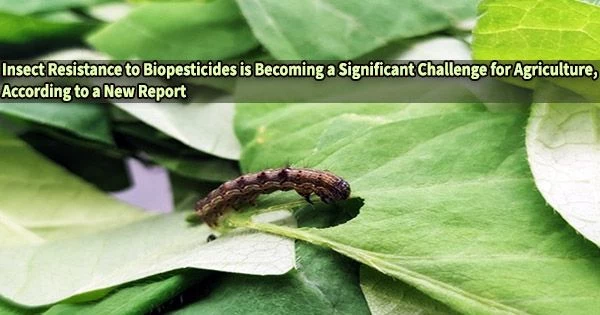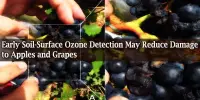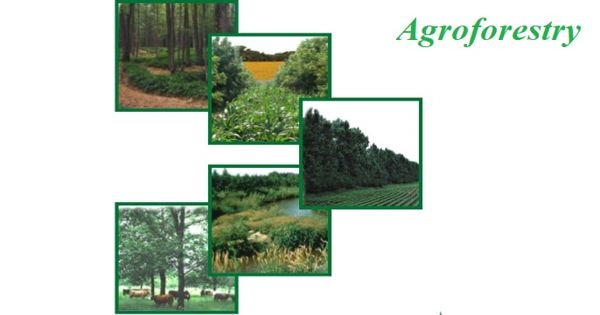According to a research by University of Stirling experts, insect pests that attack crops have the astonishing ability to acquire resistance to more environmentally friendly pesticides. This means that a new approach to managing resistance risks is required.
Agriculture’s answer to pesticide resistance has been to continuously look for new insecticides in an effort to stay up with pests that are mutating for more than 70 years.
While farmers welcome the ongoing “green revolution” in pest control by switching to “biopesticides” derived from living creatures, researchers now suggest a new method to get off this treadmill.
As the world population rises, the evolution of biopesticide resistance has significant effects on food security throughout the world. Biopesticides are an essential instrument in the development of sustainable crop protection.
Researchers have applied key concepts from evolutionary ecology in an effort to solve this new problem and have put forth a workable framework for controlling the dangers of the evolution of biopesticide resistance.
Novel resistance management approaches are needed for these crop protection products to avoid the same treadmill of invention and loss as has happened for chemical pesticides. Our perspective argues that farmers can help manage resistance risks by planting a wider diversity of crops and using multiple biopesticides. This will reduce the spread of resistance and help keep biopesticides effective in the long term.
Dr. Rosie Mangan
They suggest that farmers can help manage resistance risks by planting a wider diversity of crops and use multiple biopesticides.
Researchers from the Faculty of Natural Sciences at Stirling University, in collaboration with peers from the Universities of Gothenburg and São Paulo State University, synthesized previous studies on biopesticides and asserted that resistance evolution is already taking place and is likely to spread as the use of biopesticides rises.
Dr. Matthew Tinsley, Senior Lecturer in Biological and Environmental Sciences at the University of Stirling, said, “People are blinkered they think because biopesticides are derived from natural sources it will be more difficult for pests to evolve resistance, but we still need to be worried about pest resistance to these new agents.”
“The lead time to develop biopesticides is five to ten years, so if we wait to act, we will lose these new agents because pests will already have evolved.”
Dr. Rosie Mangan, post-doctoral researcher at the University of Stirling added, “Novel resistance management approaches are needed for these crop protection products to avoid the same treadmill of invention and loss as has happened for chemical pesticides.”
“Our perspective argues that farmers can help manage resistance risks by planting a wider diversity of crops and using multiple biopesticides. This will reduce the spread of resistance and help keep biopesticides effective in the long term.”
The new paper, “Increasing ecological heterogeneity can constrain biopesticide resistance evolution,” is published in Trends in Ecology and Evolution. It forms part of the wider Stirling-led project ENDORSE (Enhancing diversity to overcome resistance evolution).
















